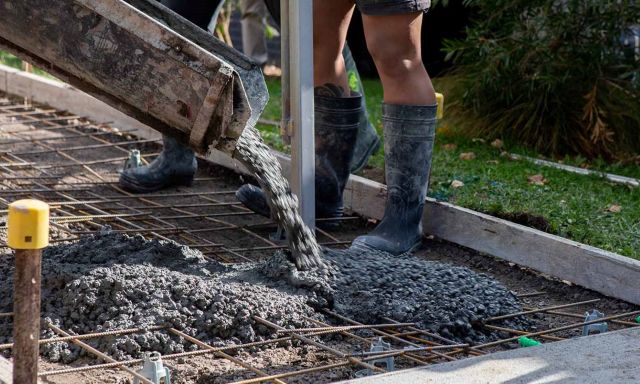Researchers trial world's first 'coffee concrete' footpath: 'A major step forward'

The world's first "coffee concrete" footpath has debuted after a promising study resulted in a stronger and more eco-friendly building material — all thanks to the waste from your morning brew.
Interesting Engineering hailed the project as "a major step forward" after Australia's RMIT University announced the completion of the footpath trial in Gisborne in May.
According to the university's media release, RMIT researchers partnered with Macedon Ranges Shire Council for the trial, and their work could lead to a solution for the 165 million-plus pounds of ground coffee waste Australia generates annually.
To this point, most of those grounds have ended up in landfills, where they generate methane as they break down. This potent gas has at least 28 times more planet-warming potential than carbon dioxide, contributing to an uptick in extreme, crop-destroying weather events.
Home and business composting initiatives can collectively make a major dent in the issue of heat-trapping gases from food waste, but other sectors also account for large volumes of pollution.
Of note, cement production is an energy-intensive process, widely reported to account for roughly 8% of global carbon pollution.
Watch now: Solar-powered boats from the Honnold Foundation are making a difference in the Amazon
Given that concrete (whose main ingredient is cement) is the second-most consumed material after water, finding a more planet-friendly way to build essential infrastructure and housing would eliminate large amounts of harmful pollution.
Last year, RMIT researchers made waves when they revealed that their coffee-based concrete was 30% stronger than traditional materials, leading Anthropocene to project their work could be "a rare double-win for the environment."
In the latest release, the university estimates that the approximately 22 billion pounds of "spent coffee" worldwide could replace nearly 200 billion pounds of sand in concrete.
To make their revolutionary coffee footpath, researchers heated grounds to around 662 degrees Fahrenheit to create a biochar that substituted for sand. They also developed a wood-chip biochar path and poured a standard concrete control strip.
"It's very exciting to see this world-first trial of our coffee and wood-based biochar in these footpaths collaboration with Macedon Ranges Shire Council," said Dr. Rajeev Roychand, the study's lead author. "Sand is getting scarce over time, and this waste can replace up to 15% of the sand in concrete."
Now, researchers will monitor the performance of the three paths. They hope their findings will support a wider rollout of their innovative discovery.
"We are currently working in the supply chain sector so that we can make this research into a mainstream product for commercial applications, and we're not only looking into coffee — we're expanding this into all forms of different organic waste," Roychand explained in the release.
According to the university, RMIT's methods may also lead to reduced construction costs.
If that's the case, it's fair to wonder if prospective homebuyers would eventually see more new builds hit the market at lower price points. For example, 3D-printed homes, which are typically less expensive to build, have been suggested as a potential solution for affordable housing.
Researchers said they plan to experiment with the amount of cement used in their designs to see if it's possible to maintain strength and quality with less material.
Join our free newsletter for weekly updates on the coolest innovations improving our lives and saving our planet.
Researchers trial world's first 'coffee concrete' footpath: 'A major step forward' first appeared on The Cool Down.
Welcome to Billionaire Club Co LLC, your gateway to a brand-new social media experience! Sign up today and dive into over 10,000 fresh daily articles and videos curated just for your enjoyment. Enjoy the ad free experience, unlimited content interactions, and get that coveted blue check verification—all for just $1 a month!
Account Frozen
Your account is frozen. You can still view content but cannot interact with it.
Please go to your settings to update your account status.
Open Profile Settings